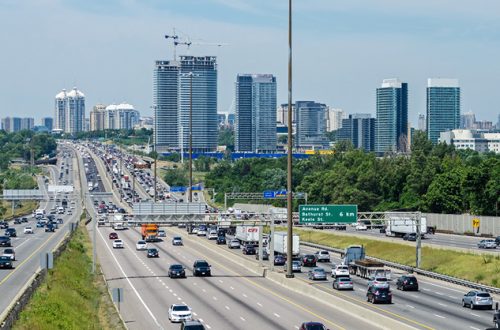As COVID-19 forever alters our daily processes and habits, we’re discovering that already vulnerable groups, such as students and new grads, are among the hardest hit in the engineering community. Many students were expecting to graduate into a robust economy full of prhttps://ospe.on.ca/wp-content/uploads/2024/10/academy-banner-7.pngcts at the start of their careers, but unfortunately, they have found this not to be the case as the engineering world struggles to pivot in the face of job loss, economic slowdown, and confused messaging.
It’s changed the curriculum for our students
As Areeba Aziz, currently enrolled at McMaster in Software Engineering tells us, students must weigh the practical concerns of social distancing against the value of an on-campus education. As schools officially announce that the fall term will be moved entirely online, Aziz wonders if the type of education received will be the same, “A lot of labs are typically done in person and we don’t know how we can get the same experience virtually.” Pointing out a concern facing many engineering students: if much of the work is hands on, collaborative, and involved, how can online learning replace this? COVID-19 related shutdowns began as the Winter 2020 term wrapped up, meaning that many online protocols were designed and operated as stopgap measures.
“We’re paying HOW MUCH for this?!”
Beyond quality, the significant burden of cost engineering students face is a growing concern. “Because of the expensive equipment and resources that are used in engineering labs, the tuition for engineering is always a significant amount more than the tuition for other streams. Now that the term will be online, there’s no way we can get the same enriching learning experience as we would in person. We are still paying the same tuition.” As the long-term reality of online learning becomes apparent, this “new normal” must adequately replace the quality old learning models.
Off-campus learning has impacts that stretch beyond the confines of the university. Students locked into year long leases, expecting to be on campus, are still obligated to pay out the remaining balance of their tenancy, “A lot of us will be staying at home, so we will be paying for eight months of rent in Hamilton without even living there.” And trying to break the lease, even with the agreement of a landlord is a tricky proposition. It means that students like Aziz will have to take a gamble, since, “We don’t even know if winter term will be online or not so we may end up paying for the entire year’s rent without living there.”
COVID-19 has changed the way we work
The fluctuating nature of COVID-19 and its fallout is affecting more than just students. As Ashley Hosier, P.Eng., related to us, she was at the end of her maternity leave and excited to get back to work when the pandemic struck. “Our daycare closed. My office transitioned to work-from-home. The planned field work ground to a halt, and new projects slowed drastically. I didn’t know what our workload was like or how long we could weather a slow-down. I didn’t know if I had a job to go back to or who would watch my son, if I did.” In the following weeks, Hosier struggled to find adequate child care and the balance her life had previously. Fortunately for her, a colleague’s child’s summer work fell through and became available for daily child care.
As engineering students, graduates and engineers grapple with the changes, some, like Muhammad Imran Chughtai are trying to see what positivity may come from the pandemic fallout. “This pandemic has made the world realize how powerful and useful a tool like the internet can be. Across the globe, we have seen a surge in the usage of the internet, whether it is the employees working from home or professors delivering lectures.” While acknowledging, long-term, that universities may find a way to turn these into savings for students, Chughtai echoes the sentiments of many students who face uneasy job prhttps://ospe.on.ca/wp-content/uploads/2024/10/academy-banner-7.pngcts. “Looking at the measures taken by different companies across the world, and many of them filing for bankruptcy, it will certainly be difficult to find a decent job.”
It’s created uncertainty for our future
This burden is carried particularly by international students like Negin Ziayee Bideh, who have spent years adapting to Canada, paying larger international student fees, and now finds that her prhttps://ospe.on.ca/wp-content/uploads/2024/10/academy-banner-7.pngcts towards Permanent Residency are diminished. As she explains to OSPE, “we need to find a job here in Canada to be able to move forward with our immigration process.” Relaying the typical student-visa process, which allows an extension if the student can secure employment soon after graduating.
This frightening prhttps://ospe.on.ca/wp-content/uploads/2024/10/academy-banner-7.pngct will have long-term effect on the students who are trained, educated and plugged into the Canadian engineering community, as they will be denied the much sought after opportunity to work here and progress the industry. Canada will lose out on the diverse cache of minds and talent developed by our universities for our Ontario industry.
The affect of the COVID-19 is unlike anything Ontario engineers have faced before. With the province taking positive steps towards reopening, the prhttps://ospe.on.ca/wp-content/uploads/2024/10/academy-banner-7.pngct of a second wave halting progress still looms. At OSPE, we are committed to listening to the concerns of our members and providing new opportunities, strategies, and solutions wherever we can. Please reach out to us via our social channels or email to share your stories, ideas, and concerns.





Leave a Comment